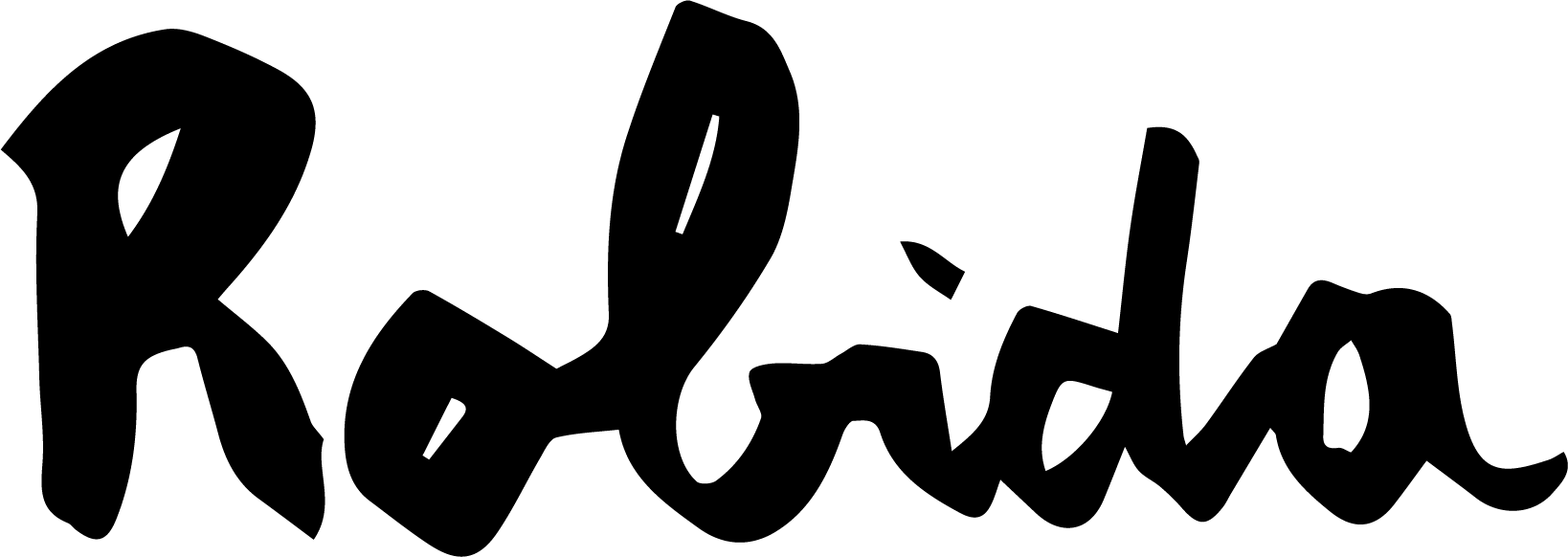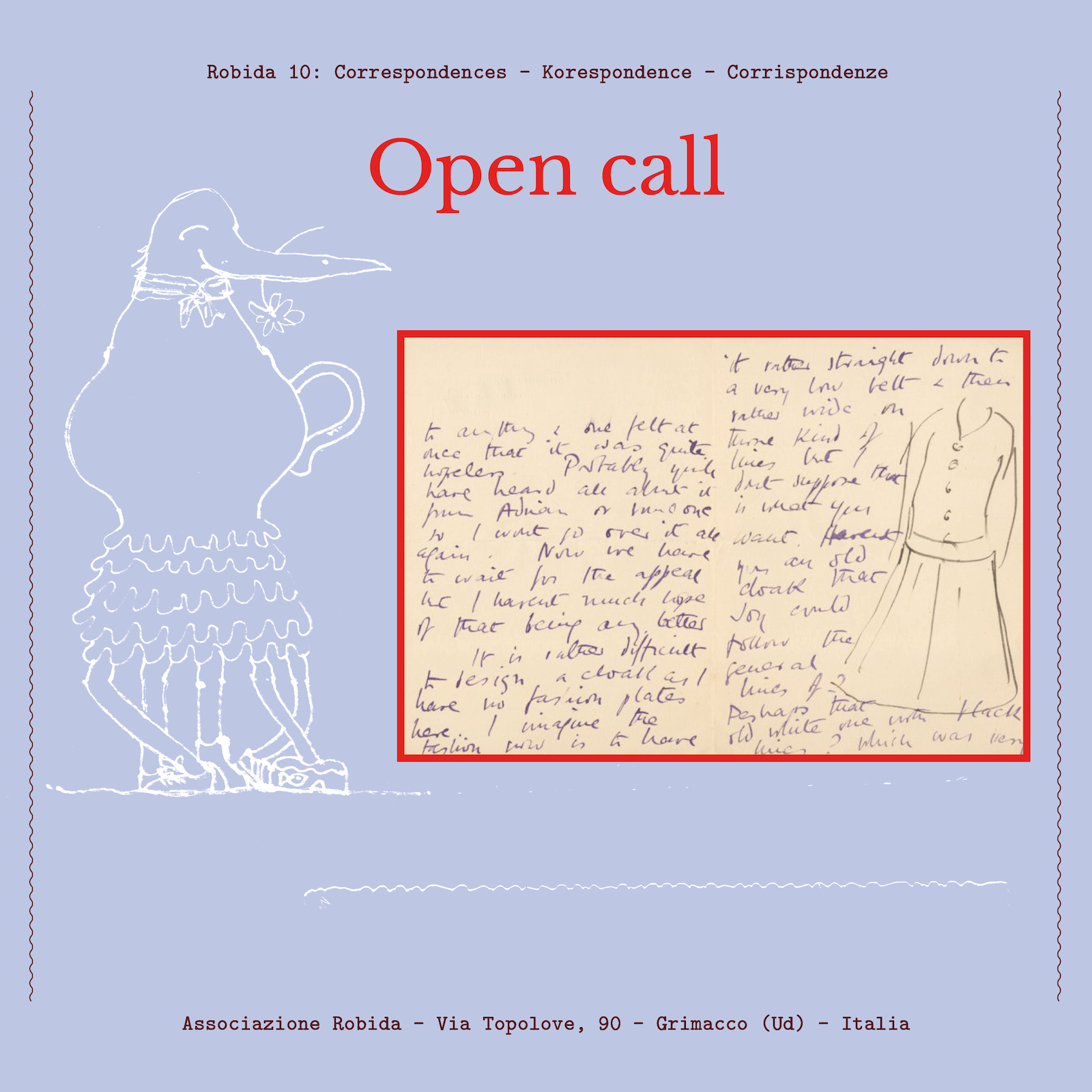CORRESPONDENCES – KORESPONDENCE – CORRISPONDENZE
Open call Robida 10
The open call is closed!
Download the PDF with the open call here
Scarica il PDF dell'open call qui
Tukaj si prenesite PDF odprtega razpisa
Correspondences
Ten is a symbolic number but also a concrete sign of ten years of our lives spent together, of long relationships persistently nurtured and new ones initiated. Friendships made of train tickets,, long phone calls, meetings, aperitivos, appointments kept or missed, exchanged books, midnight drives, waitings in the rain, dance evenings, arguments, laughter, supportive hugs, walks, crowded kitchens, shared notes, collected photos, singings, haircuts and coffees. Friends inviting other friends, people coming back again and again to continue conversations started during other seasons, collaborations and exchanges developing over shared google docs, voice messages, emails, gifts and sometimes letters.
We were looking for a topic that would be open to all of this, without realising that it was already there.
All of the fruits of our Robida shared something in common – a connection between two or more people, infinite conversations, correspondences with the place and growing support structures.
The concept of correspondence hints at the relationship between different elements of the world, which meaningfully connect with each other and create a certain resonance or organic analogy between them. The notion of correspondences contains the idea that living beings, objects, images, or experiences can only be understood in relation to other living beings, objects, images, or experiences, whereby we can begin to reveal hidden connections and meanings that would be missed if we focused solely on individual entities themselves before them being placed in any of these relationships.
Correspondences produce novel organisations.
A lichen, for example, is a symbiotic kinship between fungi and alga and/or cyanobacteria, which is greater than the sum of its parts, possessing emergent properties not found in its respective components. We would like to think that something similar happens between human beings in discursive and other types of collaborations. Symbiotic relations we form with others, are occasions where you start “to take turns doing things for each other or for the others, and where you allow yourself to be possessed by others as they do something.” (Fred Moten and Stefano Harney, The Undercommons) Correspondences are practices of self invention through relation. (Alex Martinis Roe, To Become Two)
Thinking of correspondences makes us think again about Robida’s collectivity. When people ask us who is part of Robida, the answer is always difficult. Who to include in the list? There is a core team, of course. But why not also naming those who contribute by bringing ideas, points of view, those who initiate conversations and open up new spaces for reflection and action? Robida at the end always built itself and grew through relations. And being in correspondence, in conversation, as a practice of self (or collective) invention through relation, is what we want to reflect on in the upcoming issue.
Guidelines
Format
We would like the guiding principles of Robida - friendship, support, correspondence, reciprocity, mutuality, conversation, kinship, affinity - to be the method behind all of the contributions as well. We would like this open call to be the occasion for you and for us to start slow conversations or develop correspondence projects with close friends or still unknown people, in a caring and supportive way.
Conversations, interviews, letter exchanges, email correspondences, image correspondences, dialogues and polylogues, also inter-species and fictional ones, metalogues, exquisite corpses, postcard exchanges, collaborative writing, etc.
Keywords
The keywords to start conversations from or crystallise reflections around are the key words of these ten years of Robida. Take them as a starting point if you feel like, as a pretext, as an occasion and an excuse to build relations!
abandonment, affection, affinity, archive, bees, belonging, border, boundaries, calendar, care, collective, commons, community, compost, comrades, conspiring, continuity, convening, conviviality, correspondences, craft, cyclicity, domesticity, dwelling, friendship, forest, gentleness, gossip, hyperlocal, hospitality, intimacy, izba, landscape, landguage, language, learning, listening, maintenance, margins, observation, paths, periphery, playfulness, pleasure, porosity, proximity, publishing, relations, residency, return, rituals, rootedness, routines, ruin, seasons, silence, situatedness, stones, stories, support, tactility, topophilia, traces, traditions, vernacular, village, visiting, wildness, with-ness
(Check the the definition of some of the words in the Glossary of the Margins – click on ABC on the right bar of the website!)
Timeline – to be carefully respected <3
22.03 → Open call is out!
15.04 → Proposals hand in → for this 10th issue what we expect from the open call are not complete contributions but proposals. Since the contribution is built as a correspondence/interview/dialogue, who do you want to include in it? Who are you willing to start or continue a conversation with? Write something small about the idea behind your proposal, who would you like to build it with, what would you like to be discussing and sharing thoughts about.
File name: Robida 10_Name Surname
Email object: Robida 10 open call
Max characters for the abstract 2500
If you want to include images, put everything in one page!
30.04 → Selection of the contributions by the editorial board
30.05 → Final contribution hand in → the max. length of the contribution should be 20.000 characters
June → Editing of the contributions with Robida & graphic design
10.08 → Launch of the 10th issue during the Academy of Margins summer school in Topolò
Languages
As always, you can write in any language you’d like. If it’s not English, Italian, Slovenian Croatian or French, please include also a short abstract in one of these languages, so that we can get a first idea of the content of your work!






